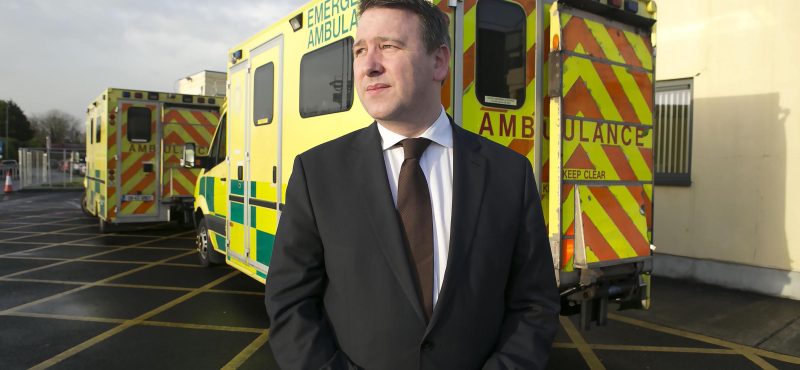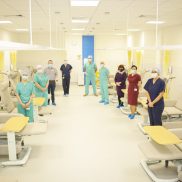A NEW strategy allowing ambulances responding to 112/999 calls to bring non-urgent cases to Ennis General Hospital has been welcomed as a positive development by Clare Fine Gael TD Joe Carey.
Since 2009, University Hospital Limerick, which is designated as a model 4 hospital, has provided the only 24-hour emergency department service for a population of around 400,000 after accident and emergency services were closed in Ennis, Nenagh and St John’s in Limerick City, which are all model 2 hospitals.
This meant that ambulances could only transport 112/999 patients to the emergency department at University Hospital Limerick (UHL), bypassing St Johns, Ennis, and Nenagh.
However, ambulances will now be allowed transport 112/999 patients who don’t require critical care to Ennis under the new protocols to relieve overcrowding at UHL.
National Ambulance Service staff have been told that patients can be taken directly to the Medical Assessment Unit (MAU) in Ennis Hospital providing they meet agreed clinical criteria and have been accepted by the MAU Physician in Ennis.”
A long-time advocate of enhancing the roles of Ennis, Nenagh and St John’s Hospitals to relieve overcrowding and staffing issues at University Hospital Limerick, Deputy Carey said that the decision to divert ambulance cases from Limerick to Ennis is a practical solution to a complex problem.
Ahead of a meeting with Health Minister Stephen Donnelly next week, Deputy Carey said the HSE and the Minister need to examine an enhanced role for the model 2 hospitals in the region.
“There is a need to build additional bed capacity at Ennis General Hospital by adding new wards and extending the opening hours of the medical assessment unit and the minor injuries unit, which was recently refurbished at a cost of €2 million” he explained.
“In the short term, the opening hours of the Ennis MAU need to be extended from the current timescale of 8am to 6pm to divert more non-critical patients away from the Emergency Department at UHL.
The same pathways now needs to be developed for Nenagh General Hospital and for St. John’s Hospital which will also reduce the pressure on the University Hospital Limerick.
“I have met with consultants who work at the coal-face in the emergency department at UHL to hear first-hand how this crisis can be addressed, ahead of a meeting I have arranged with Minister Stephen Donnelly early next week. I have also raised my deep concerns with the Taoiseach and with management at the University of Limerick Hospital Group.
” There is a serious bed capacity shortfall in the Mid-West region. Despite an investment of more than €100 million along with the recruitment of additional consultants, doctors, nurses and medical staff, UHL still experiences the worst overcrowding of any hospital in the State.
“These overcrowded conditions are dangerous for patients, as well as the doctors, nurses and staff who work extremely hard in the most challenging of environments. There is a need for a collective and immediate response from the Government and the HSE to take control of this extremely serious situation,” Deputy Carey declared.
” I strongly support the proposal to build an elective-only hospital to cater for patients outside of UHL. An elective-only hospital needs to be prioritised for the Mid-West ahead of any other region because of the shortage of beds in the system.
“The Sláintecare plan recommends that three elective-only hospitals be built – one each in Dublin, Cork and Galway. This policy clearly needs to change and priority must be given to delivering an elective-only hospital for the Mid-West.
“It is of critical importance that it be prioritised and that every effort be made by the State to fast-track its delivery.
“Private hospitals played an important role during the Covid crisis and their services should now be contracted to cater for elective patients at UHL and deal with the extraordinary waiting lists for procedures,” Deputy Carey concluded.




